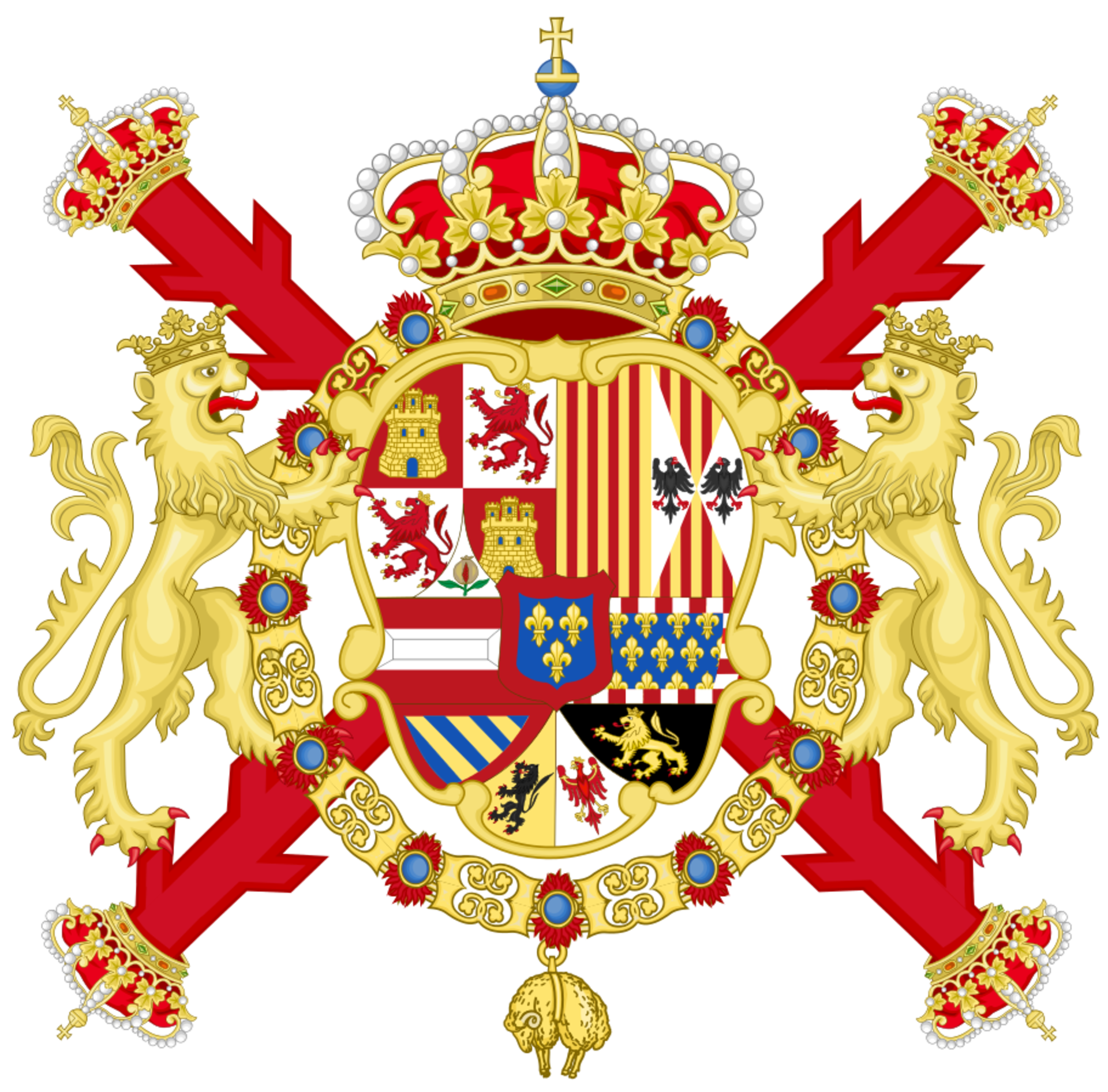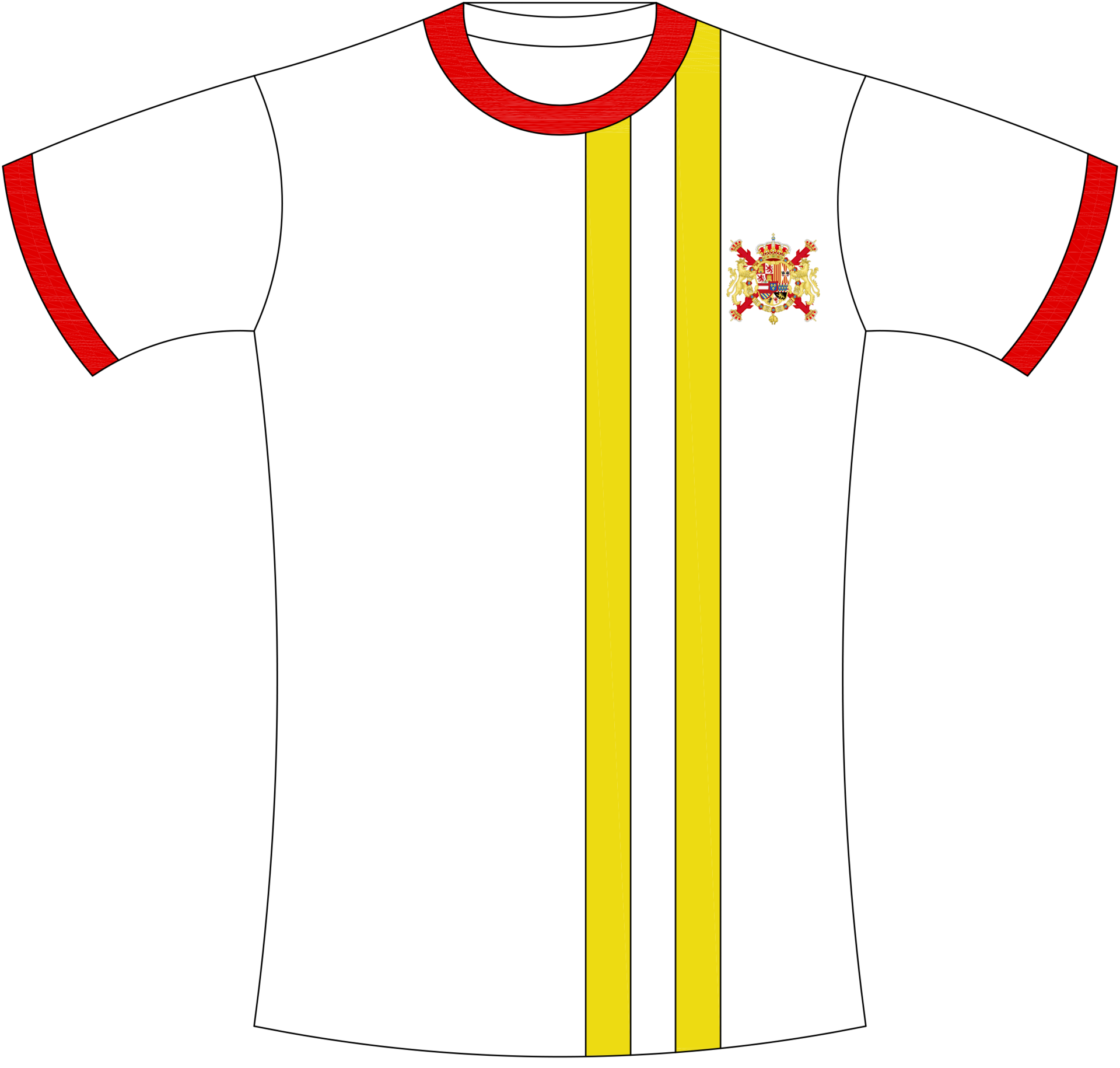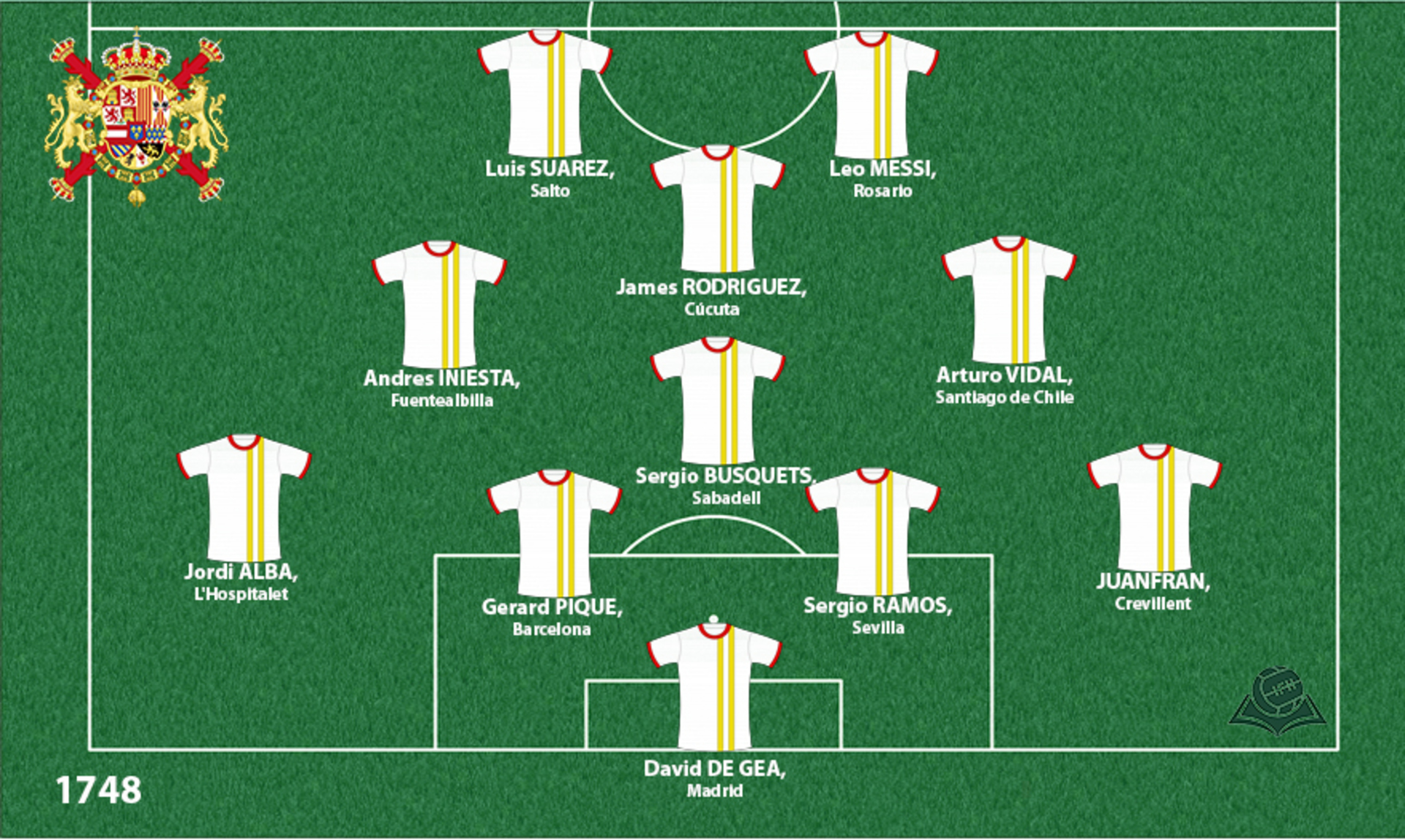Spanish Empire
Although the War of the Spanish Succession (1701–1714) reduced Spain to the rank of second world power, it also relieved it of its obligation to deprive it of interfering continual wars for centuries. Thus, during the second half of the 18th century, dedicated to itself, Spain began to acquire the first outlines of modern identity.

Coat of arms

Shirt
| Position | First name | Last name | Mjesto rođenja | Like | Dislike | |
|---|---|---|---|---|---|---|
| GK | David | DE GEA | Madrid |
24 |
5 |
|
| GK | Keylor | NAVAS | Pérez Zeledón |
3 |
0 |
|
| DC | Davinson | SANCHEZ | Caloto |
0 |
0 |
|
| DC | Diego | GODIN | Rosario |
1 |
0 |
|
| DC | Gerard | PIQUE | Barcelona |
19 |
9 |
|
| DRC | Sergio | RAMOS | Sevilla |
19 |
5 |
|
| DRL | Cesar | AZPILICUETA | Pamplona |
13 |
0 |
|
| DR | Daniel | CARVAJAL | Leganes |
16 |
4 |
|
| DR | Torres Belén | JUANFRAN | Crevillent |
4 |
1 |
|
| DR/MR | Antonio | VALENCIA | Nueva Loja |
0 |
0 |
|
| DR/MR | Hector | BELLERIN | Barcelona |
11 |
5 |
|
| DL | Jordi | ALBA | L'Hospitalet |
18 |
3 |
|
| DC/DMC | Javier | MASCHERANO | San Lorenzo |
1 |
0 |
|
| DMC | Sergio | BUSQUETS | Sabadell |
14 |
2 |
|
| MC | Andres | INIESTA | Fuentealbilla |
19 |
1 |
|
| MC | Arturo | VIDAL | Santiago de Chile |
1 |
0 |
|
| MRLC | Jorge Merodio | KOKE | Madrid |
8 |
0 |
|
| MRLC | SAUL | Niguez | Elche |
9 |
0 |
|
| AMC | James | RODRIGUEZ | Cucuta |
1 |
0 |
|
| AMRLC | Angel | DI MARIA | Rosario |
1 |
0 |
|
| AMRLC | David | SILVA | Arguineguín |
5 |
0 |
|
| AMRLC | Francisco Román Alarcón Suárez | ISCO | Benalmádena |
12 |
0 |
|
| AMRLC | Juan | MATA | Ocón de Villafranca |
10 |
0 |
|
| SS/FRLC | Paulo | DYBALA | Laguna Larga |
4 |
0 |
|
| FRLC | Alexis | SANCHEZ | Tocopilla |
3 |
1 |
|
| FRLC | Lionel | MESSI | Rosario |
8 |
0 |
|
| FC | Luis | SUAREZ | Salto |
3 |
0 |
|
| FC | Mauro | ICARDI | Rosario |
0 |
0 |
|
| FC | Radamel | FALCAO | Santa Marta |
1 |
0 |
|
| FC/SS | Sergio | AGUERO | Qilmes |
5 |
0 |
After the death of the last king from the branch of the Spanish Habsburgs, the War of the Spanish Succession (1700-1714) broke out between the Austrian Habsburgs and the Spanish Bourbons with the help of France. He ended up with a compromise solution: the Bourbons were given the throne and the colonies, and the Habsburgs had Spanish possessions in the Catholic Southern Netherlands and Apennine Peninsula, making them more powerful than ever before. The war reduced Spain to the rank of second-rate force and led to the rise of the ambitions of France Louis XIV. Although in the years prior to certain parts of the country (such as Catalonia), the government was suppressing tradition, thinning out special laws and reducing the importance of institutions, the new bourbon government and definitively abolished the liberties (privileges in the legal system) of Aragon, Valencia, Catalonia, Mallorca, etc., leaving only in force Basque Liberties (an area that supported his option during the Succession War.
One of the most important rights of liberties was to exclude the obligation to participate in recruiting if the war was not in their area or the will of their institutions to cooperate with money or companies in defense of the monarch. The church was still too powerful, the nobility dispersed, the peasants mostly too poor, the levies unfairly distributed, and only a narrow circle, mostly the upper class, was educated.
Spanish colonial power was also declining. Over time, North America will become more successful than the South simply because the British model of widespread property rights, social mobility and democracy worked better than the Spanish model of concentrated wealth and autocracy, giving the few elites the right to exploit the natives. Also, from the very beginning, Spain invested less in trade and more in territorial conquest and had no internationally significant trading and banking cities and was unable to control the European world economy.
Sources
- Niall FERGUSON, Civilizacija: Zapad i ostali, Zagreb, 2012.
- Felipe FERNANDEZ-ARMESTO, Narodi Europe, Zagreb, 1997.
- Grupa autora, Povijest: Doba prosvjetiteljstva (18. stoljeće), knjiga XI., Zagreb 2008.
- Herfried MUNKLER, Imperiji : logika svjetske vladavine - od Staroga Rima do Sjedinjenih Američkih Država, Zagreb, 2010.
- Giuliano PROCACCI, Povijest Talijana, Zagreb, 1996.
- Nikola Samardžić, Identitet Španije, Admiral Books, 2014.
- Therese SCHUSSEL, Erich ZOLLNER,''Austrija postaje velesila – dvorski apsolutizam'' http://wieneruhr.at/austrija-postaje-velesila-dvorski-apsolutizam/
- Lazar Baćović: Nastanak moderne Španjolske i povijesni uzroci današnjih podjela u španjolskom društvu (4. dio)''http://www.advance.hr/tekst/nastanak-moderne-spanjolske-i-povijesni-uzroci-danasnjih-podjela-u-spanjolskom-drustvu-4-dio/
- Coat of arms: https://en.wikipedia.org/wiki/List_of_coats_of_arms_of_Spain
